2023 Turkish presidential election
The 2023 Turkish presidential election are scheduled to take place on 18 June 2023, as part of the 2023 general election, alongside parliamentary elections on the same day.
| ||||||||||||||||||||||||||
| Opinion polls | ||||||||||||||||||||||||||
| ||||||||||||||||||||||||||
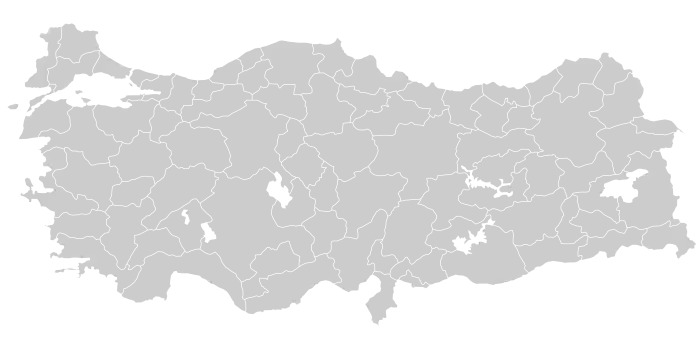 | ||||||||||||||||||||||||||
| ||||||||||||||||||||||||||
Voters will elect a new president for a term of five years.
Background
Elections of 2018
The previous Turkish general election took place on 24 June 2018. The election marked the country's transition from a parliamentary system to a presidential one, as narrowly endorsed by voters in the controversial 2017 constitutional referendum. That election resulted in a victory for incumbent president Recep Tayyip Erdoğan, who had held the position since 2014. Meanwhile, the ruling Justice and Development Party (AKP) lost its absolute majority in the Grand National Assembly of Turkey for the first time since June 2015, forcing it to rely on its coalition partner, the Nationalist Movement Party (MHP) of Devlet Bahçeli, to pass legislation.
Although there were speculations about a snap election prior to the regular one in 2023, Bahçeli ruled them out. In a written statement, he said that elections would not be held before 2023. He also confirmed that the current coalition between AKP and MHP will remain intact and Erdogan will be their joint nominee for President.[1]
Electoral system
The President of Turkey is directly elected through the two-round system, under which a candidate must obtain a simple majority (more than 50%) of the popular vote in order to be elected. If no candidate secures an overall majority outright, then a runoff is held between the two most voted-for candidates from the first round, the winner of which is then declared elected. The first direct election to the Turkish presidency was held in 2014, after a referendum in 2007 abolished the previous system under which the head of state was elected by the legislature, the Grand National Assembly of Turkey. The President of Turkey is subject to term limits, and may serve at most two consecutive five-year terms.[2]
Prospective presidential candidates must be at least 40 years old and must have completed higher education. Any political party that has won 5% of the vote in the previous parliamentary election can put forward a candidate, although parties that have not met this threshold can form alliances and field joint candidates as long as their total vote share exceeds 5%. Independents can run if they collect 100,000 signatures from the electorate.[3]
Candidates
Publicly expressed interest
- Cem Uzan, former leader of the Young Party (GP)[4]
- Muharrem İnce, leader of the Homeland Party, candidate for president in 2018[5]
Potential
- Recep Tayyip Erdoğan, 12th President of Turkey (2014–present), 25th Prime Minister of Turkey (2003–2014), Mayor of Istanbul (1994–1998)[6]
- Kemal Kılıçdaroğlu, leader of Republican People's Party, leader of the opposition[7]
- Ahmet Davutoğlu, leader of the Future Party, 26th Prime Minister of Turkey (2014-2015), 42st Minister of Foreign Affairs (2009-2014)[8]
- Ali Babacan, leader of the Democracy and Progress Party, Deputy Prime Minister of Turkey (2009-2015), 41st Minister of Foreign Affairs (2007-2009), Minister of State (2002-2007)[8]
- Gültekin Uysal, leader of the Democrat Party[8]
- Temel Karamollaoğlu, leader of the Felicity Party, Mayor of Sivas (1989–1995), candidate for president in 2018[8]
- Pervin Buldan, co-leader of the Peoples' Democratic Party, Deputy Speaker of Parliament (2015-2018)
- Fatih Erbakan, leader of New Welfare Party[9]
- Abdullah Gül, 11th President of Turkey (2007-2014), 24th Prime Minister of Turkey (2002–2003), 40th Minister of Foreign Affairs (2003-2007)[10]
- Süleyman Soylu, Minister of Interior (2016-present), Minister of Labour and Social Security (2015-2016)[10]
- Doğu Perinçek, leader of Patriotic Party, candidate for president in 2018[10]
- Tansu Çiller, 22nd Prime Minister of Turkey (1993–1996), 36th Minister of Foreign Affairs (1996-1997), Minister of State (1991-1993)[11]
- Mustafa Sarıgül, leader of Party for Change in Turkey, Mayor of Şişli (1999-2014)[12]
Declined to be candidates
- Devlet Bahçeli, leader of Nationalist Movement Party, Deputy Prime Minister (1999-2002)[13]
- Ekrem İmamoğlu, Mayor of Istanbul (2019-present), Mayor of Beylikdüzü district (2014-2019)[14]
- Mansur Yavaş, 29th Mayor of Ankara (2019-present), Mayor of Beypazarı district (1999-2009)[15]
- Meral Akşener, leader of the İYİ Party, Minister of Interior (1996-1997), candidate for president in 2018, [16]
Candidates and parties
Presidential candidates
 |
 |
 |
 |
 |
| to be determined | to be determined | to be determined | to be determined | to be determined |
| AKP | CHP | HDP | MHP | İYİ |
Contesting parties
| Justice and Development Party | Republican People's Party | Peoples' Democratic Party | Nationalist Movement Party | İyi Party |
|---|---|---|---|---|
295 / 600 |
146 / 600 |
67 / 600 |
49 / 600 |
43 / 600 |
Opinion polls
See also
References
- "General elections to be held in 2023, early polls out of question, MHP's Bahçeli says | Daily Sabah". General elections to be held in 2023, early polls out of question, MHP’s Bahçeli says. Sep 7, 2020. Retrieved Dec 23, 2020.
- Dopico, Alex (6 November 2021). "Does Turkey have term limits?". janetpanic.com. Retrieved 19 March 2022.
- "Anayasa değişikliği maddeleri tam metni | Yeni anayasa maddeleri nelerdir? | Son Dakika Türkiye Haberleri". Cnnturk.com. Retrieved 23 October 2017.
- "Cem Uzan'dan adaylık açıklaması". www.cumhuriyet.com.tr. Retrieved Dec 23, 2020.
- Gazetesi, Dünya (2021-09-18). "Muharrem İnce: Açıklıyorum aday adayıyım". www.dunya.com (in Turkish). Retrieved 2021-09-20.
- "Bahçeli: 2023'te adayımız Recep Tayyip Erdoğan'dır". www.sozcu.com.tr (in Turkish). Retrieved 2021-10-27.
- "Meet Turkish President Erdogan's presumptive challenger". The Economist. 10 March 2022. Retrieved 12 March 2022.
- "Kılıçdaroğlu'ndan 'Aday olacak mısınız' sorusuna yanıt: 'Altı liderden biri olacak ama...'". Gerçek Gündem (in Turkish). No. 11 March 2022. Retrieved 12 March 2022.
- "Fatih Erbakan: Potansiyel cumhurbaşkanı adayıyım". BirGün (in Turkish). 12 September 2021. Retrieved 12 March 2022.
- @Optimar_AS (October 7, 2021). "Türkiye'nin Nabzı Eylül Ayı Araştırmamızda katılımcılara sorduğumuz "2023' te gerçekleşecek #Cumhurbaşkanlığı #seçimler inde kime oy verirsiniz?" sorusuna aldığımız yanıtlar" (Tweet) – via Twitter.
- "Tansu Çiller'in başına geçeceği parti belli oldu". soL (in Turkish). 12 March 2022. Retrieved 12 March 2022.
- "Sarıgül cumhurbaşkanlığı adaylığına açık kapı bıraktı: Günü geldiğinde tartışırız". Yeni Şafak (in Turkish). 21 January 2021. Retrieved 12 March 2022.
- "Erdogan to be candidate of People's Alliance in 2023 presidential elections". Report News Agency. 7 February 2022. Retrieved 12 March 2022.
- "İstanbul mayor says he will not run for president in 2023 - Turkish Minute". Turkish Minute. 11 May 2021. Retrieved 12 March 2022.
- "Mansur Yavaş: Cumhurbaşkanlığına odaklanmak gibi bir niyetim yok | DW | 28.10.2021". Deutsche Welle (in Turkish). 28 October 2021. Retrieved 12 March 2022.
- "İYİ Party's Akşener says she will run for prime minister not president - Turkey News". Hürriyet Daily News. Retrieved 2021-10-27.
.jpg.webp)
.jpg.webp)
.jpg.webp)
.jpg.webp)
_(cropped).jpg.webp)
.jpg.webp)
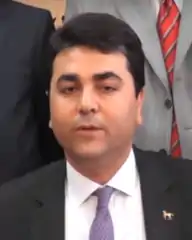
.jpg.webp)
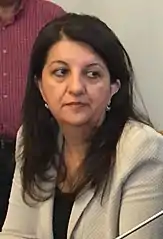
.jpg.webp)
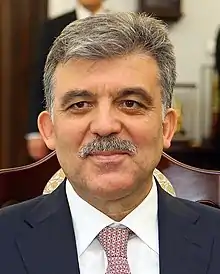
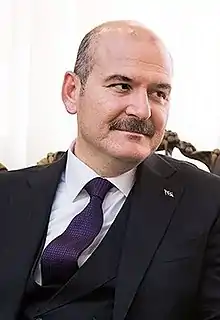

_Rueda_de_prensa_de_Felipe_Gonz%C3%A1lez_y_la_primera_ministra_de_Turqu%C3%ADa._Pool_Moncloa._16_de_noviembre_de_1995_(cropped).jpeg.webp)
.jpg.webp)
.jpg.webp)
.png.webp)
.jpg.webp)
.jpg.webp)